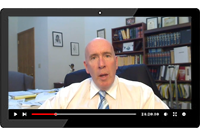What is a bait and switch scam? Dealerships use the bait and switch advertising scam in order to get customers into the car dealership by advertising a low price or low payments on a particular vehicle. However, the vehicle in question is not on the lot at the dealership. Not having the vehicle on the lot is the part of the scam known as the “bait.”
The “switch” occurs when the customer gets to the dealership and is told that the car in question has been sold or is, unfortunately, not available at the price that had been advertised. However, the “good news” is that the dealer has several cars that are similar to the advertised vehicle. The catch? It’s a higher priced car.
Possible scenarios involving a bait and switch scam:
- The advertised vehicle has already been sold
- The advertised vehicle exists, but on any one of the dealer’s multiple locations
- The advertised vehicle is a loss-leader which means is a stripped down model
- The dealer will sell you the vehicle, but you have to make a huge down payment or finance the car for 72 months
Is it illegal?
Bait and switch scams are a type of consumer fraud, and every state has a consumer protection law that prohibits deceptive practices. These scams can fall under a number of violations, from breach of contract to false advertising. In addition, a bait and switch is a potential violation of the Consumer Fraud and Deceptive Business Practices Act or Section 5 of the Federal Trade Commission (FTC) Act.
However, even though bait and switch scams are illegal, many dealerships continue to get away with them. Unfortunately, bait and switch scams are extremely complex and sophisticated schemes. The problem for the consumer is that they have to be able to prove that the car dealership could not follow through with what they have advertised.
These types of scams are examples of common-law fraud and requires the following 3 elements to be met in order to take legal action:
- Misrepresentation of a material fact by the defrauding party with intent to deceive
- Victim’s reliance on that false material (e.g., advertisement)
- Actual damages to another party
If you have been a victim of bait and switch scam at the dealership….
If you believe that you have been the victim of a bait and switch scam, and that as a result, you purchased another vehicle at a higher price, you may have a legal claim for damages against the dealership. Your best bet is to contact an auto fraud attorney who has experience when it comes to suing car dealerships.
Deceptive advertising can include an advertisement in a newspaper or communications to potential customers via emails or text messages.
At the Law Offices of Robert F. Brennan, auto fraud attorney, our goal is to determine whether you’ve been a victim of auto fraud and if you need to take legal action to resolve the issue.


